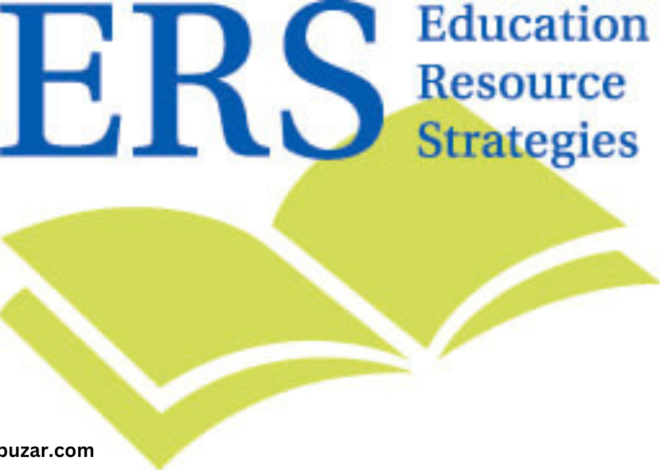
Essential education : Unlocking Success in 2024
Essential education is the cornerstone of personal growth, societal development, and global progress. In today’s rapidly changing world, where knowledge is power, ensuring access to essential-education is more critical than ever. Let’s delve into the significance of essential education and explore why it’s essential for individuals, communities, and the world at large.
Understanding Essential Education
At its core, essential education encompasses the fundamental knowledge and skills necessary for individuals to thrive in various aspects of life. It goes beyond traditional academic subjects to include practical skills, critical thinking abilities, and social-emotional competencies.
What is Essential Education?
Essential education is not confined to textbooks and classrooms; it encompasses a holistic approach to learning that prepares individuals for success in a dynamic and interconnected world. It equips learners with the tools they need to navigate challenges, pursue opportunities, and contribute meaningfully to society.
Why Essential Education Matters
Empowerment Through Knowledge
Essential-education empowers individuals by equipping them with the knowledge and skills needed to make informed decisions, pursue their aspirations, and advocate for themselves and others.
Enhancing Critical Thinking Skills
In an era of information overload and rapid technological advancements, critical thinking skills are essential for discerning truth from misinformation, analyzing complex issues, and making sound judgments.
Fostering Creativity and Innovation
Essential education nurtures creativity and innovation by encouraging individuals to think outside the box, explore new ideas, and collaborate with others to solve problems and drive progress.

The Role of Essential Education in Society
Building a Skilled Workforce
A well-educated workforce is crucial for driving economic growth, fostering innovation, and maintaining a competitive edge in the global marketplace.
Promoting Social Cohesion and Inclusivity
Essential-education plays a vital role in promoting social cohesion and inclusivity by breaking down barriers, fostering understanding and empathy, and celebrating diversity.
Addressing Global Challenges
From climate change to global health crises, essential education equips individuals with the knowledge and skills needed to address pressing challenges facing humanity.
Challenges in Accessing Essential Education
Despite its importance, access to essential-education remains a challenge for millions of people around the world due to various socioeconomic, cultural, and geographical factors.
Socioeconomic Barriers
Poverty, lack of infrastructure, and inadequate resources often hinder access to quality education, particularly in marginalized communities.
Gender Disparities
Gender inequality remains a significant barrier to education, with girls and women disproportionately affected by factors such as discrimination, early marriage, and lack of access to healthcare.
Geographic Limitations
Remote and rural areas often lack educational facilities and infrastructure, making it difficult for residents to access essential education opportunities.
Strategies for Improving Access to Essential Education
Addressing these challenges requires a multifaceted approach that involves governments, civil society organizations, and the private sector working together to expand access to essential-education for all.
Government Policies and Initiatives
Governments play a crucial role in ensuring that education is accessible, affordable, and of high quality for all citizens through policies, funding, and strategic investments.
Technological Innovations in Education
Advancements in technology have the potential to revolutionize education by making learning more accessible, interactive, and personalized, regardless of geographical location or socioeconomic status.
Community-Based Programs
Community-based initiatives, such as literacy campaigns, vocational training programs, and adult education classes, play a vital role in reaching underserved populations and addressing specific educational needs.
The Future of Essential Education
As we look to the future, it is essential to adapt to emerging trends and challenges to ensure that essential-education remains relevant and accessible to all.
Adaptation to Technological Advancements
Embracing technology and digital learning platforms can enhance the reach and effectiveness of essential-education initiatives, providing learners with new opportunities for engagement and collaboration.
Lifelong Learning Opportunities
In a rapidly changing world, lifelong learning is essential for individuals to adapt, grow, and thrive in their personal and professional lives, necessitating a shift towards more flexible and inclusive educational models.
Global Collaboration in Education
Collaboration and cooperation among governments, organizations, and individuals across borders are essential for addressing global educational challenges, sharing best practices, and fostering mutual understanding and cooperation.
Conclusion
In conclusion, essential education is not just a privilege; it’s a fundamental human right and a cornerstone of sustainable development. By prioritizing access to essential-education for all, we can unlock human potential, foster inclusive societies, and build a brighter future for generations to come.
Unique FAQs
- What is the difference between essential education and traditional education?
- Essential education goes beyond traditional academic subjects to include practical skills, critical thinking abilities, and social-emotional competencies necessary for success in today’s world.
- How can governments improve access to essential-education?
- Governments can improve access to essential-education through policies, funding, and strategic investments in infrastructure, teacher training, and educational technology.
- What role does technology play in essential education?
- Technology can enhance the reach and effectiveness of essential-education initiatives by making learning more accessible, interactive, and personalized, regardless of geographical location or socioeconomic status.
- How can individuals contribute to expanding access to essential-education?
- Individuals can contribute to expanding access to essential education by volunteering with community-based organizations, advocating for policy changes, and supporting initiatives that promote education for all.
- What are some examples of essential-education programs?
- Examples of essential education programs include adult literacy classes, vocational training initiatives, and community-based workshops on topics such as financial literacy, health education, and digital skills.


